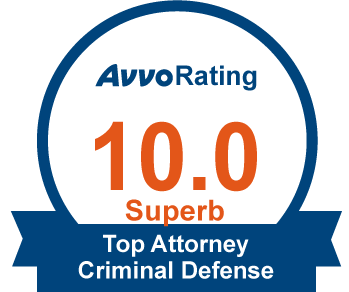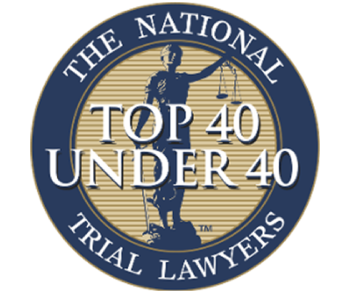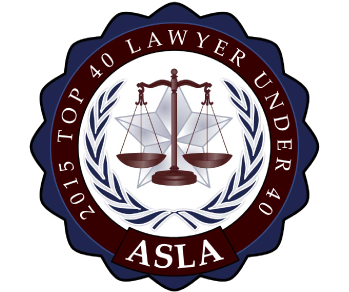Different forms of child pornography
- Child pornography means a visual representation of a person under the age of 18 years engaging in explicit sexual activities or showing off sexual content involving their private organs or anal region
- It also means audio recording which has a dominant characteristic that describes or portrays sexual purpose or intercourse with one who is under 18 years
- Another interpretation is that it is written material that has a dominant nature of depicting sexual purposes and sexual activities with an under aged person
Once an individual has been convicted of child pornography crimes, the prosecution will depend on these interpretations to prove that sexual offenses were committed.
Punishments on Child Pornography
Production and distribution of child pornography- according to California Penal code PC 311.1 and 311.2, any individual who is caught making, publishing or printing child pornography is deemed guilty of an indictable crime. Again one who has captured advertising; selling, distributing, transmitting, making available, exporting, importing or possessing child pornography is guilty.
According to PC 311.10, it is an offense for a person to access child pornography and knowingly cause the content to be transmitted to him or herself. The law states that it’s illegal for one to advertise child pornography.
Penal code 311.11, on the other hand, states that possession of child pornography is illegal and makes an individual liable to imprisonment. Code 311.3 indicates that accessing child pornography and exploiting the minors is illegal: a person who is caught with possession of access to child pornography is guilty of an indictable crime.
Penalties for these crimes vary depending on the various section of the penal code that the defendant is accused of violating. For production, one faces a jail time of one year and $1000 for misdemeanor and 16 months and $10000 for a felony. For distribution, a felony charge leads to 2 to 6-year imprisonment and $100000 fine. For printing and duplicating, a misdemeanor leads to a one year jail time and $2000 fine while a felony charge results to 16 months to 3 years and $10000 fine. Possession, on the other hand, leads to a one year jail time and $2500 for misdemeanor and 16 months to 3 years and $10000 for a felony charge.
Defenses to child pornography
Charges of child pornography may be dropped if the defendant proves that the act of the alleged crime relates to administration purposes or justice function or education, art, medicine or science. Again the charges may be dropped if the action does not pose a risk of harm to the person under the age of 18 years. It is however not a defense for the defendant and their solicitor to argue that the accused believed that the person on the representation alleged to represent child pornography was shown to be over 18 years of age. Such a defense may only work if the defendant took steps and precautions to ensure that what they believed was true.
Levels of legal jurisdiction
State vs. Federal laws
A federal crime of child pornography entails illegal activities of possession, manufacturing or distribution across countries such as the use of social media. Even though such offenses will lie under the jurisdiction of the federal government, the state prosecutors may pursue the cases to ensure that justice is achieved. The sentences that a defendant is likely to vary from the different jurisdiction, but they both require that defendant register as a sex offender
Mandatory sex registration
Once an offender is convicted of committing child pornography or such related crimes, they are supposed to register as a sex offender as per the requirement of the sentence. The criminal will submit their names, past offenses as well as an address to the registry for monitoring. These registrations ensure that the offenders are closely monitored so that they may be discouraged from committing the crimes again. If one fails to register, addition misdemeanor or felony charges can be imposed.
Victims of child pornography
Child pornography is considered to be an act of child exploitation both sexually physically, and the representations are said to memorialize the sexual abuse against the child. Because of this, most of the laws on this topic are severe, and law enforcers work their level best to eradicate the offenses. The justice department, on the other hand, is ruthless to victims of the crime which often see them serve maximum time once they are proven guilty.
Since children are unfamiliar with sexual activities, they will be depicted to be in distress and uncomfortable which makes sexual abuse self-evident. There is, however, some representation in which a child seems complacent to the actions taking place. The fact that the victim is complacent does not, however, mean that abuse did not occur. A sex offender will thus be convicted and sentenced even if their victims seemed complacent on the ongoing of the crime.
In most of the cases experienced on child pornography, the abuse is often not a one-time occasion but an ongoing process. The offender may end up glomming the relationship with their victims and thus leading to the child being less resistant to the abuse. The justice department thus considers the actions as offensive and illegal despite the type of affection between the offender and the child that the content displays. The victimization on not just that of physical sense but also of emotional matter given that the children will be devastated by the idea that their images are traded to the public. The children suffer from helplessness, humiliation, fear as well as the lack of control.
Child pornography and the first amendment
People have often argued that child pornography needs to be protected under the 1st amendment. These arguments have however been unsuccessful given that the justice department concludes that images of child pornography should not be classified as protected speech and they thus remain illegal.
How to fight Child Pornography Charges
Charges against child pornography are devastating given the social stigma that you as the defendant face as well as the harsh penalties that accompany the charge under the California child pornography laws. However, with the help of our attorneys, you may have these fees reduced or dismissed.
One of the ways to fight child pornography charges is to argue that you are not guilty of the crime and that you were entrapped under California entrapment law. By proving that you were persuaded or forced by a law enforcement officer to commit the crime, then your charges will be dropped. Since most of the traded child pornography today is done via the internet, the defendant may have been convinced by an officer to purchase child pornography as they conduct their undercover operations. Once you and your attorney convince the jury of this, the entrapment defense may work in your favor.
Convincing the prosecutor that you acted unknowingly and with no intent is another defense that you may use to have your changes reduced. According to the California child pornography laws, one is to have acted with knowledge for them to be convicted. Possible mistakes such as mistyping a search term, clicking on a wrong link or downloading content that you do not understand what it contains may give us access to child pornography. Convincing the jury of this would lead to your charges being lenient thus a simpler sentence.
It is possible that the defendant was wrongfully accused of the crimes after being set up. It is thus the work of the attorneys to prove that you did not commit the offenses after which the charges are dropped. You can convince the jury that someone placed the evidence at a convenience place so that you may face the charges.
If the evidence against you was obtained through illegal means, it might not hold up in court which may lead to the charges against you being dropped. The police may have found the evidence via illegal searches or seized it from you or someone else illegally. Proving this to the jury will lead to the charges being dropped until the evidence is legally found.
Psychological addiction is another defense that may get your charges reduced. If you have a psychological addiction to child pornography and you have previously sought help from the authorities, then such an argument may hold up in court. The defendant will need to show remorse as well as regret for their conduct for the argument to hold.
Working With Our Attorneys
Whether under the federal or the state law, crimes against children and especially those involving child pornography carry long sentences as well as possible sex registration. Therefore once you have been accused of child pornography, it's essential that you contact your attorney as quickly as possible. This helps in ensuring that the chances of you making a mistake are reduced. Attorneys will again help you resolve the issues as fast as possible thus avoiding public and media scrutiny given that those who have been accused of child abuse cases in the past faces critics even in the media. Our firm has highly experienced solicitors who have dealt with similar cases before and who understands what is necessary to get you out of the trouble.
Defendants of sex crimes more so those of child pornography often lament that they do not receive a fair trial and that the judgment is always one sided. We, however, ensure that we cultivate the facts and pressure the jury to hear both sides of the case proceeding and make a proper ruling that is not biased. The laws of child pornography have also evolved due to the complications of the issue brought about by technological advancements. Our attorneys conduct detailed research to facilitate proper information in the proceedings and ensure that the prosecution does not bend the law trying to pin unfair accusations on the defendant. We also try and protect the defendant against having their names on the registry of sex offenders as much as possible once we are confident that the accused is innocent. Call us today at (562) 308-7807 or contact us!








